第2章 Chapter I The New City(2)
The land was flat--as flat as a table--with a waning growth of brown grass left over from the previous year, and stirring faintly in the morning breeze. Underneath were signs of the new green--the New Year's flag of its disposition. For some reason a crystalline atmosphere enfolded the distant hazy outlines of the city, holding the latter like a fly in amber and giving it an artistic subtlety which touched him. Already a devotee of art, ambitious for connoisseurship, who had had his joy, training, and sorrow out of the collection he had made and lost in Philadelphia, he appreciated almost every suggestion of a delightful picture in nature.
The tracks, side by side, were becoming more and more numerous.
Freight-cars were assembled here by thousands from all parts of the country--yellow, red, blue, green, white. (Chicago, he recalled, already had thirty railroads terminating here, as though it were the end of the world.) The little low one and two story houses, quite new as to wood, were frequently unpainted and already smoky --in places grimy. At grade-crossings, where ambling street-cars and wagons and muddy-wheeled buggies waited, he noted how flat the streets were, how unpaved, how sidewalks went up and down rhythmically--here a flight of steps, a veritable platform before a house, there a long stretch of boards laid flat on the mud of the prairie itself. What a city! Presently a branch of the filthy, arrogant, self-sufficient little Chicago River came into view, with its mass of sputtering tugs, its black, oily water, its tall, red, brown, and green grain-elevators, its immense black coal-pockets and yellowish-brown lumber-yards.
Here was life; he saw it at a flash. Here was a seething city in the making. There was something dynamic in the very air which appealed to his fancy. How different, for some reason, from Philadelphia! That was a stirring city, too. He had thought it wonderful at one time, quite a world; but this thing, while obviously infinitely worse, was better. It was more youthful, more hopeful.
In a flare of morning sunlight pouring between two coal-pockets, and because the train had stopped to let a bridge swing and half a dozen great grain and lumber boats go by--a half-dozen in either direction--he saw a group of Irish stevedores idling on the bank of a lumber-yard whose wall skirted the water. Healthy men they were, in blue or red shirt-sleeves, stout straps about their waists, short pipes in their mouths, fine, hardy, nutty-brown specimens of humanity. Why were they so appealing, he asked himself. This raw, dirty town seemed naturally to compose itself into stirring artistic pictures. Why, it fairly sang! The world was young here.
Life was doing something new. Perhaps he had better not go on to the Northwest at all; he would decide that question later.
In the mean time he had letters of introduction to distinguished Chicagoans, and these he would present. He wanted to talk to some bankers and grain and commission men. The stock-exchange of Chicago interested him, for the intricacies of that business he knew backward and forward, and some great grain transactions had been made here.
The train finally rolled past the shabby backs of houses into a long, shabbily covered series of platforms--sheds having only roofs--and amidst a clatter of trucks hauling trunks, and engines belching steam, and passengers hurrying to and fro he made his way out into Canal Street and hailed a waiting cab--one of a long line of vehicles that bespoke a metropolitan spirit. He had fixed on the Grand Pacific as the most important hotel--the one with the most social significance--and thither he asked to be driven. On the way he studied these streets as in the matter of art he would have studied a picture. The little yellow, blue, green, white, and brown street-cars which he saw trundling here and there, the tired, bony horses, jingling bells at their throats, touched him.
They were flimsy affairs, these cars, merely highly varnished kindling-wood with bits of polished brass and glass stuck about them, but he realized what fortunes they portended if the city grew. Street-cars, he knew, were his natural vocation. Even more than stock-brokerage, even more than banking, even more than stock-organization he loved the thought of street-cars and the vast manipulative life it suggested.